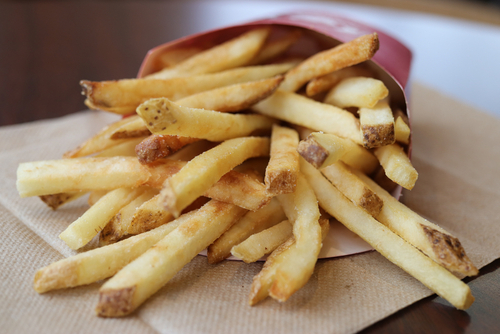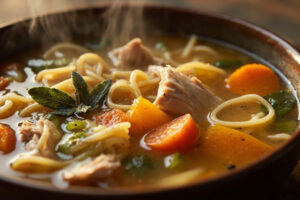Last Updated on June 13, 2025 by Brian Kachejian

What Is Halal Food? A Complete Guide to Meaning, Rules, and Cultural Significance
In an increasingly globalized food landscape, terms like “halal” have become more visible on menus, food packaging, and restaurant signs around the world. But what exactly does “halal” mean—and why does it matter?
This article explores the meaning of halal food, the religious and ethical principles behind it, the differences from similar dietary systems, and how it plays a role in today’s culinary world.
What Does Halal Mean?
“Halal” is an Arabic word that simply means “permissible” or “lawful.” In the context of food, it refers to anything that is allowed to be consumed under Islamic law, based on teachings from the Qur’an and Hadith (sayings of the Prophet Muhammad). The opposite of halal is “haram,” meaning forbidden.
Halal is not a cuisine or a cooking style—it’s a set of religious guidelines that determine what foods Muslims can eat and how those foods must be prepared.
What Makes Food Halal?
To be considered halal, food must meet a number of requirements that align with Islamic dietary laws. These include:
- Permissible Ingredients: The food must not contain any forbidden ingredients such as pork, alcohol, blood, or meat from carnivorous animals.
- Humane Animal Treatment: Animals must be healthy at the time of slaughter and treated with respect.
- Proper Slaughter Method: Animals must be slaughtered by a Muslim who invokes the name of God (saying “Bismillah Allahu Akbar”) before making a swift, deep cut to the throat, severing the main arteries and draining the blood.
- Cross-Contamination Prevention: Halal food should not be prepared, processed, or packaged using equipment that has come into contact with haram substances.
Processed foods, sauces, and even certain flavorings or gelatin can be halal or haram depending on their source ingredients and preparation.
The Role of Halal in Islam
Halal is more than a dietary restriction—it is a spiritual and ethical code. In Islam, food is not just sustenance but also an expression of one’s faith and moral values. Halal laws are rooted in the broader Islamic principle of tayyib, which means “pure, wholesome, and clean.” Choosing halal food is a way for Muslims to live in accordance with divine guidance.
Moreover, the slaughtering process is designed to minimize the animal’s suffering, reflecting Islam’s emphasis on compassion and respect for all living beings.
What Foods Are Considered Haram?
To understand halal, it’s important to also understand what is haram. Foods and substances forbidden under Islamic law include:
- Pork and pork by-products
- Alcohol and intoxicants
- Meat from animals that die of natural causes or are not slaughtered properly
- Blood and blood by-products
- Carnivorous animals and birds of prey
In addition, foods that are prepared with or contaminated by haram ingredients are also considered forbidden, even if the base ingredient is halal.
Halal Certification and Labeling
To help consumers identify halal products, many countries have certification bodies that verify whether food companies comply with halal standards. These organizations inspect processing methods, ingredients, and preparation facilities before granting a halal certification label.
Major global halal certification agencies include:
- JAKIM (Malaysia)
- IFANCA (United States)
- HFA (UK)
- SANHA (South Africa)
Restaurants, meat suppliers, and packaged food producers often display halal certification seals to assure Muslim consumers.
Halal vs. Kosher: Similarities and Differences
Halal is often compared to kosher, the dietary system observed by observant Jews. While both emphasize ethical slaughter, clean ingredients, and religious blessings, there are key differences:
- Kosher allows alcohol; halal forbids it.
- Halal permits shellfish; kosher law does not.
- Kosher requires separation of meat and dairy; halal does not.
Both systems require special certification and serve religious as well as ethical purposes for their followers.
The Rise of Halal in Global Food Culture
Halal food is no longer limited to traditional Middle Eastern or South Asian cuisine. As global awareness of dietary preferences increases, halal options have expanded into diverse categories—fast food chains, fine dining, organic groceries, and even vegan brands.
The global halal food market is projected to surpass $2 trillion by the end of the decade. Countries with growing halal infrastructure include the United States, United Kingdom, Indonesia, Malaysia, and parts of Europe.
Restaurants and retailers now regularly cater to halal-conscious consumers, and food tech startups are innovating with halal-certified meat alternatives.
Common Misconceptions About Halal Food
There are several misunderstandings about what halal food is and who it’s for:
- Myth: Halal food is only for Muslims.
Fact: Many non-Muslims choose halal for ethical, health, or quality reasons. - Myth: Halal meat is inhumane.
Fact: Islamic law requires animals to be treated with compassion and to suffer as little as possible. - Myth: Halal is a flavor or cuisine.
Fact: Halal is a set of religious dietary laws—not a cooking style or taste profile.
Educating people about what halal really means fosters inclusivity and helps dismantle prejudice based on misinformation.
Why Halal Matters Today
In an era where conscious consumption, ethical sourcing, and dietary transparency are at the forefront of public interest, halal food plays a vital role in addressing these values from both spiritual and practical angles. Understanding halal allows for greater cultural respect, religious accommodation, and informed food choices across all communities.
Whether you’re dining with friends, operating a restaurant, or simply trying to understand global food standards, learning about halal is part of being an aware and respectful global citizen.
























